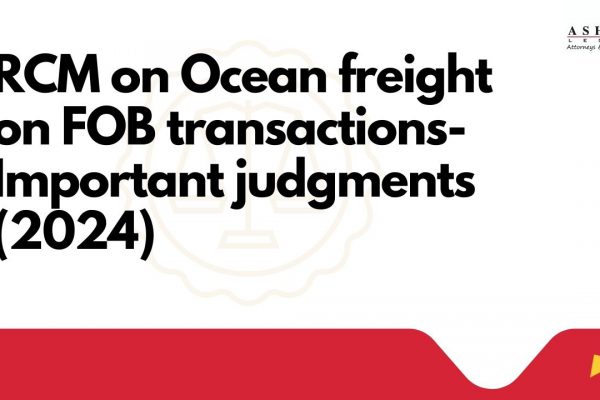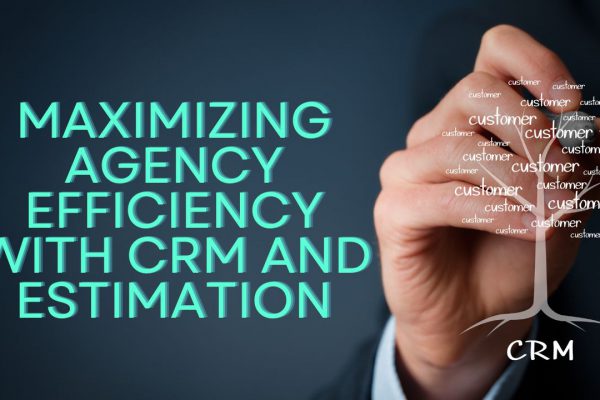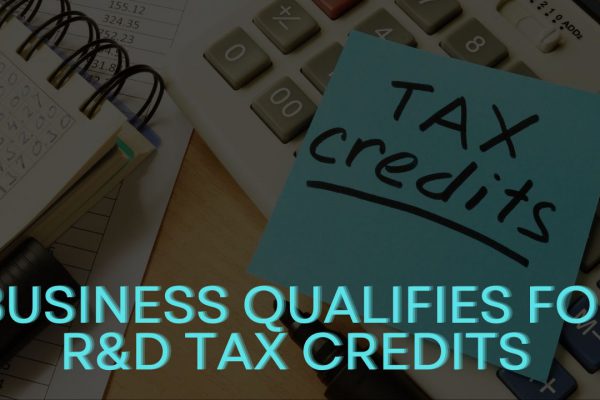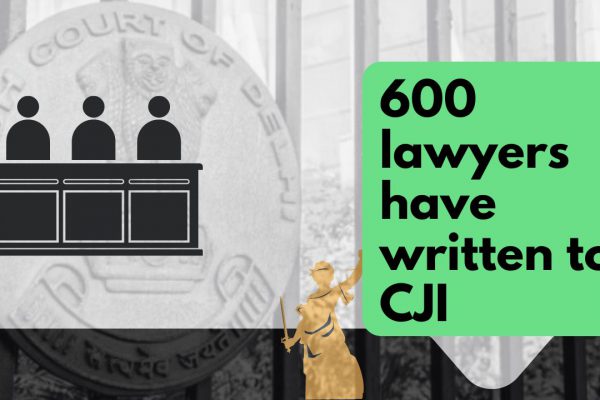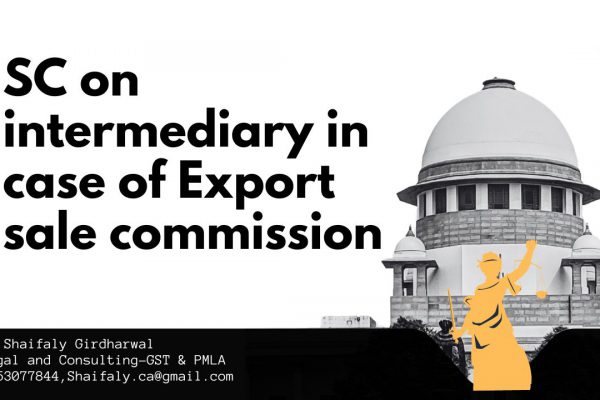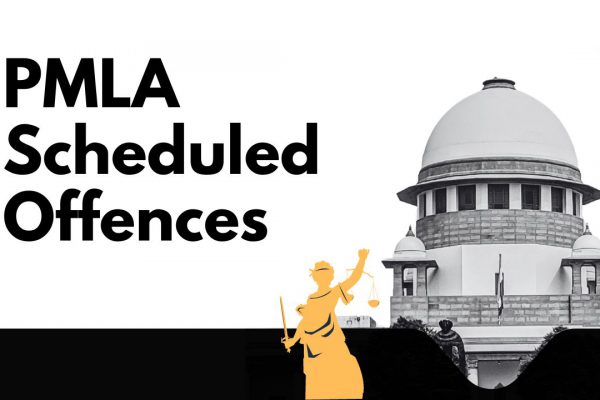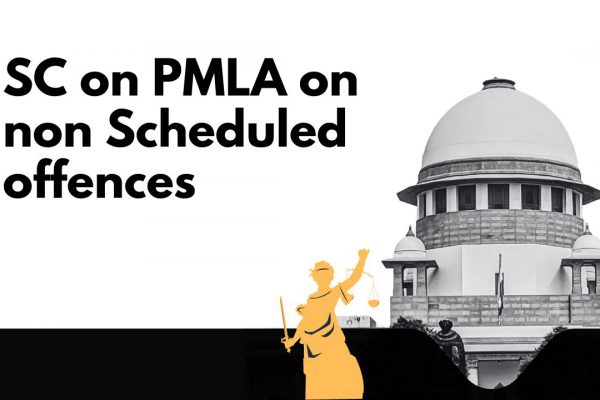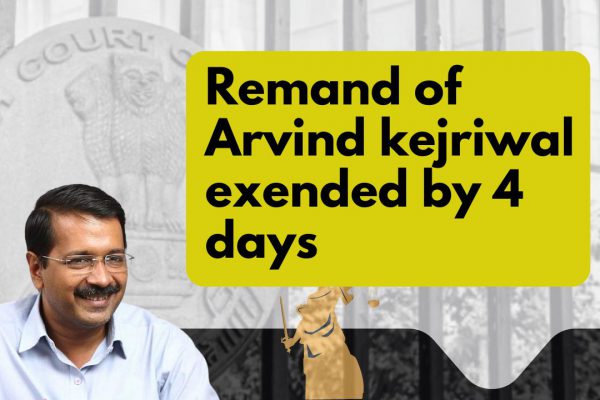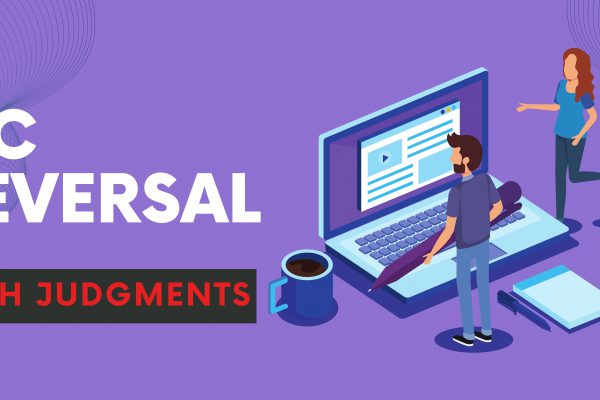Note on Employer-Employee Transactions
Note on Employer-Employee Transactions
Applicable Provisions
‘Supply’ has been defined under Section 7(1) of the Central Goods and Services Tax Act, 2017 (“CGST Act”) which provides that supply inter-alia includes-
a. all forms of supply of goods and/or services such as sale, transfer, barter, exchange, license, rental, lease or disposal made or agreed to be made for a consideration by a person in the course or furtherance of the business;
b. a supply specified in Schedule I, made or agreed to be made without a consideration. Section 7(2) of the CGST Act provides that activities or transactions specified in Schedule III would not be treated as a supply of goods nor a supply of services. Accordingly, for any transaction to be treated as a taxable supply under the CGST Act, it should be covered under Section 7(1) and should not be covered by activities or transactions mentioned under Section 7(2).
Schedule 1 covers supply of goods or services or both between ‘related persons’ or between distinct persons as specified in section 25, when made in the course or furtherance of business. ‘Related Persons’ as defined under Section 15 deems employer and employee to be related persons. Further, as per Schedule III, services by an employee to the employer in the course of or in relation to his employment are neither a supply of goods nor a supply of services. From the cumulative reading of the above provisions, it can be understood that: –
➢ Supply of goods/ services provided by the employer to employee, whether with or without consideration,x is leviable to GST;
➢ Services provided by the employee to the employer, in the course of or in relation to his employment are neither a supply of goods nor a supply of services and thus, no GST would be leviable.
Analysis of Various Transactions
The transactions between employer-employee can broadly be categorized into the following categories: –
1. Reimbursements for business expenses incurred by the employees on behalf of the employer
2. Cash Payments/ Vouchers/ Coupons
3. Services and goods provided to employees
4. Utilities provided to employees as part of regular business expenses
5. Facilities provided to employees
I. Reimbursements for business expenses incurred by the employees on behalf of the employer
The essence of these transactions is the procurement of goods/services or both, as the case may be, for the purposes of business or employment, costs of which are initially paid by the employee against which reimbursements are made by the employer. This includes reimbursement of expenses such as those for official tours, for daily conveyance, purchases of stationery by the employees for office use, etc.
Supply
In such type of transactions, it can be said that there is ‘no supply’ of any good/service or both by the employee to the employer against the reimbursements received. These can be understood as mere receipt of goods/services or both, as the case may be, by the employer for use/consumption by its employees in the course of their employment. Essentially, the employees are only acting as users/ beneficiaries of the same and the employers being the recipients. Accordingly, there is no supply from the employees’ end to the employer. As a consequence, in our view, no GST would be leviable on such type of reimbursements.
Input Tax Credit
As regards the credit of GST paid on procurement of the above said, the same would be allowed subject to satisfaction of the provisions of Chapter V of the CGST Act, read with the Input Tax Credit Rules. Here, it may be noted that invoices for the goods/services or both, shall be in the name of the employer in order to avail input tax credit.
Reverse Charge
Further, in order to determine whether the employer would be liable to pay tax under reverse charge in case of purchases by the employee from unregistered dealers, it is relevant to draw attention to Section 10(14) of the Income Tax Act, 1961 which states as follows: –
“Any special allowance or benefit (as prescribed in Rule 2BB), not being in the nature of perquisite as provided in section 17(2) of the Act, specifically granted to meet expenses wholly, necessarily and exclusively incurred in the performance of the duties of an office to the extent such expenses are actually incurred for that purpose will not be included in the total income of the assessee”.
The above-said section has been interpreted by various courts over the period to hold that reimbursement of expenditure on actuals is not an income of the person receiving such reimbursement and therefore, the reimbursements received by an employee in the discharge of official obligations will not be an income of the employee.
In cases where reimbursements are covered by the said section, it can be said that the supplies have been received by the employees for their own consumption, in the official capacity. As discussed above, the reimbursement is not an income of the employee and further, the employee does not make any supply to the employer. Accordingly, there is no receipt of goods/ services by the employer and thus, he would not be liable to pay tax under reverse charge.
In cases other than the ones covered under the said section, in our view, the actual receipt of goods/ services is by the employer and therefore, the employer would be liable to pay tax under reverse charge for transactions with unregistered dealers.
|
Case No. |
Situation |
Reverse Charge on Employer |
|
1. |
GST invoice in employer’s name |
No |
|
2. |
GST invoice in employee’s name |
No |
|
3. |
Reimbursements covered under Section 10(14) of Income Tax Act, in case no invoice/ normal invoice is available |
No |
|
4. |
Others |
Yes |
|
5. |
Dearness Allowance (taxable in hands of employees) not in the nature of reimbursements and is part of the salary to employees |
No |
II. Cash Payments/ Vouchers/ Coupons
Apart from payments made by way of reimbursements (covered above) and salaries (that are not considered to be supply), employers tend to pay their employees cash for multiple other reasons such as incentives for quality service, long-term service of the employee, cash prizes in sports events, expenses on studies undertaken by the employees, referral bonus, scholarships to children of employees, Diwali bonus, etc.

a) Cash Awards and Incentives: Herein, there is no flow of goods/services, other than those in the course of or in relation to the employment, from the employee to the employer against the cash received. Distribution of awards/ incentives in cash (which are not covered under the head ‘salaries’ for the purposes of Income Tax Law) merely involves ‘transaction in money’ which is neither supply of any good nor supply of service. Thus, in our view, ‘no supply’ takes place from the employer to the employee. Consequently, no GST would be leviable on such cash awards and incentives. Also, the same if in the nature of gifts, there shall be no supply for gifts up to the value of Rs. 50,000.
b) Gifts of Cash: These are voluntary payments made to employees. In this type of cash payments also, there is no flow of goods/ services from the employee to the employer for consideration. The whole transaction involves only ‘transaction in money’. Accordingly, in our view, GST would also not be leviable on cash gifts made to employees.
Further, in both the above cases, the question of availability of input tax credit does not arise.
Vouchers/ Coupons
Another form of making payment/ awarding/ rewarding the employees is the issuance of vouchers or coupons. These may be of two types, first which specify the monetary limits up to which goods/ services for purchased (also known as face value vouchers) and second, the ones which can be exchanged for predetermined goods/ services.
In the first case, an argument can be taken that issuance of vouchers/ coupons is parallel to making cash payments, the only difference being that the vouchers/ coupons can be used only for making specified purchases. Accordingly, in our view, the same should be treated at par with cash payments and no GST should be leviable on the same. However, it may be noted that the above stand is prone to dispute by the
department.
In the second type of vouchers, it can be said that there is the supply of goods/ services by the employer to the employee. The nature of the supply would be dependent upon whether the voucher is for procurement of goods or services. Further, the rate of tax on supply of such vouchers shall also be dependent on the same. Accordingly, in our view, GST would be payable on such supplies. Here, it may be noted that where the vouchers are in the nature of gifts, there will be no supply for vouchers issued up to Rs. 50,000.
Further, credit can be availed of the tax paid on the purchase of all such vouchers.
Here, it may be noted that where any recovery is made by the employer for such vouchers, the same would qualify to be an independent supply. Accordingly, GST would be leviable on the same.
III. Services and goods provided to Employees
This category would cover cases where the employees are given goods/services in kind which includes awards for quality service, long-term service of the employees, prizes in sports events, Diwali bonus, rewards, etc. These can be broadly bifurcated on whether such services/ goods can be said to be a consideration for the work carried out in the course of employment.
A.) Cases, where the supply of goods/ services is a consideration for the work carried out in the course of employment, can further be categorized into following 2 categories: –

i.) Where an option has been granted to employees, it can be argued that providing goods/ services is a replacement for cash. It is the consideration for the employment service and therefore, the same should be treated equivalently to the treatment given to cash payments, as discussed above. An analogy may be drawn in this scenario from treatment given to such transactions under Income
Tax Act, 1961 where the supply of goods/ services for employment service as replacement of cash is considered to be a part of ‘salary’ to the employee and therefore, subject to TDS under Section 192 of the Income Tax Act.
Therefore, in our view, the goods/ services provided under an option in the employment contract remains outside the ambit of GST and thus, not taxable. However, it may be noted that since there is the supply of goods or services in the literal meaning of the phrase, the above said the view is highly prone to dispute by the department as the same shall be considered to be the supply of goods/ services without consideration to a related person. Further, credit can be availed on the inward supplies of such goods/ services.
ii.) Even in cases where no such option has been given to the employees but giving goods/ services as ‘salary’ can be established by way of the employment arrangement, it can be said that giving of goods/ services is merely consideration for the employment services rendered by the employee which are also subject to TDS under the head ‘salary’ under the Income Tax Act. Therefore, in our view, the same would also not be leviable to GST. In this case, also, credit can be availed of the input tax paid.
B.) Further, where it cannot be substantiated that the supply of goods or services is part and parcel of the employment arrangement, the same in our view, would qualify to be a ‘supply’ from one related party to another. Accordingly, GST would be leviable in such a case. In this case, the credit of the input tax paid would be available for utilization towards payment of outward tax liability.
Recovery from Employees
Where in any of the above-discussed cases, any amount is recovered from the employees by the employer, then notwithstanding the above discussions, the recoveries would be leviable to GST. This may include recoveries made for the supply of food/ drinks in the canteen, transportation costs of employees, etc. The specific exemption granted in respect of any services or goods will apply wherein the same is provided to employees by the employer. (Example: house is given on recovery of rent)
IV. Utilities provided to employees as part of regular business expenses
This category houses the cases wherein various utilities are made available by the employer to its employees for carrying out their duties of employment.
Examples of such utilities are providing issuing laptops to employees, facilitating internet connection, providing chairs and desks in the offices, serving tea/coffee, air-conditioned office premises to work in, transportation service to factory employees, etc.
In case of provisioning of such utilities free of cost to the employees, it can be said that the same has been provided in order to facilitate the employees to perform their jobs. These are understood to be the basic requirements for carrying out the assigned jobs. In this case, it can be argued that there exists no intention of supplying goods or providing services in the literal as well as the intentional meaning of the term. There is no supply or provisioning of the facility in the first place, instead, these represent expense for the employer, employee being in the position of the user/ beneficiary. Accordingly, going by the purposive interpretation of the phrase ‘supply of goods or services or both’ covered under Schedule I, in our view, such expenses would not be covered under the said phrase. Thus, no GST would be leviable on such expenses. However, credit can be availed of the input tax paid.
However, it may be noted that in cases where any sum is recovered by the employer from his employees, the above-discussed principle does not hold the place. Due to recovery, the giving of goods/ services is no longer of the nature of utilities and the same takes the shape of a supply between related persons. Accordingly, GST would be leviable on such recoveries.
V. Facilities provided to employees
This category of transactions would cover various facilities such as transportation facilities to employees, gym in offices, etc. These cover facilities provided by the employer over and above what is treated as remuneration to the employee for his/ her services.
In this case, a view may be taken that the purpose of undertaking such activities by the employer is of making the voluntary arrangement of certain facilities for the employees as an additional incentive of being a part of the organization. These can be said to be in the nature of benefits which are extended to employees as a part and parcel of the employment service though not explicitly, but inherently. Further, unlike any other supply, even if the employee does not take advantage of such facilities, it will bring no change either in his employment service or his remuneration.
Accordingly, giving a purposive and intentional reading to the term ‘supply’, in our view, the activities in the nature of facilities do not fit into the term of supply. Accordingly, in our view, the same would not be leviable to GST. However, the said view is highly prone to dispute by the department.
Further, some specific transactions between employer and its employees are illustrated hereinafter for your perusal: –
|
S. No. |
Situations |
Outward Supply by Employer |
ITC to Employer* |
Payment under R/C for purchases from unregistered dealers |
L&S Comments |
|
1. |
Rent Free Accommodation as part of the salary. |
No |
Yes |
Yes |
*** |
|
2. |
Lease of purchased car to employee for business purposes in the following cases: – a) Where such supply forms part of the salary of the employee; b) Where such supply does not form part of the salary of the employee. |
No
No
|
No
No
|
Yes
Yes
|
Where the leasing of car is not a part of the salary of the employee, the same can be said to be in the nature of utilities provided by the employer. Further, in case where leasing does not form part of the salary and is held to be a taxable supply, it can be argued that credit is available of input tax as leasing of car in itself is a supply. |
|
3. |
Lease of purchased car to employee for business purpose which involves transfer of ownership to employee on a later date.
|
Yes |
Yes |
Yes |
Here, an argument can be taken that wherein car is sold even after an uncertain period, the sale of car amounts to supply and thus, credit is eligible of the duties paid on its purchase. It shall also be noted that credit availed on the car to the extent the same is used by the employee for personal purposes, must be reversed by the employer.
|
|
4. |
Car taken on lease and further leased to employee in the following cases: –
a) Where such supply forms part of the salary of the employee; b) Where such supply does not form part of the salary of the employee.
|
No
No |
No
No |
Yes
Ye s |
Where the leasing of car is not a part of the salary of the employee, the same can be said to be in the nature of utilities provided by the employer and thus, not taxable. Wherein leasing does not form part of the salary and is said to be a taxable supply, it can be argued that credit is available as leasing of car in itself is a supply. |
|
|
Insurance (Eg- Group Medical insurance) |
No |
No |
NA |
Here, it can be said that insurance is in the nature of facility provided to employee and thus, not taxable. This is though, highly disputable. No ITC will be available because it cannot be said that the employer is providing insurance services to its employees. |
|
6. |
Rent a cab services availed by the employer for transportation of its employees (Eg- hiring of bus for daily transportation of its employees from home to office and back) |
No |
No |
Yes |
Here, it can be said that rent a cab is in the nature of facility provided to employee and thus, not taxable. This is though, highly disputable. No ITC would be available. |
|
7. |
Health Services – Subscription of medical facilities by the employer wherein employee can get medical consultancy over the call for himself as well as his family |
No |
No |
Yes |
Here, it can be said that it is in the nature of facility provided to employee and thus, not taxable. However, this view is highly disputable. Further, no ITC shall be available because it cannot be said that the employer is providing health services to its employees. |
* ITC is available subject to the provisions of Chapter V of the CGST Act.
Summary
The various transactions between employer and employees can be summarized in the following table: –
|
S. No. |
Situations |
Outward Supply by Employer |
ITC to Employer* |
Payment under R/C for purchases from unregistered dealers |
L&S Comments |
|
1. |
Reimbursement to employees for business expenses: – ➢ Purchases by employees from reg-istered dealers; ➢ Purchases by employees from un-registered dealers (only in cases where the reimbursements are not of the nature covered under Sec-
tion 10(14) of the Income Tax Act) |
No No |
No Yes |
No Yes |
Credit of the input tax would be eligible only if invoice is in the name of the employer and goods and services doesn’t fall in negative list. |
|
2. |
Cash Payments to employees (Eg – scholarship to employee children) |
No |
No |
No |
*** |
|
3. |
Issuance of vouchers: – a) Face value vouchers; b) Others
|
No Yes |
Yes Yes |
Yes Yes |
*** |
|
4. |
Goods or services to employees which are subject to TDS under the head ‘salary’ under the Income Tax Law (Eg – Supply of car as part of salary) |
No |
Yes |
Yes |
*** |
|
5. |
Goods or services to employees which are not subject to TDS under the head salary. (Eg – Diwali gifts, birthday gifts) |
Yes |
No |
Yes |
Supplies in the nature of gifts not exceeding the value of Rs. 50,000 are not considered to be supply and thus, not taxable. |
|
6. |
Awards and Rewards (Eg – best performer award, referral awards) |
Yes |
Yes |
Yes |
For gifts not exceeding the value of Rs. 50,000, there is no supply and thus, no GST. |
|
7. |
Business expenses incurred by the employer which are of the nature of utilities. (Eg – internet connection, air conditioned offices) |
No |
Yes |
Yes |
*** |
|
8. |
Business expenses incurred by the employer which are in the nature of facilities. (Eg – Gym facility in office, daily transportation facility from home to office and back, etc.) |
No |
No |
Yes |
Non – levy of GST on such transactions is highly disputable. |
If you already have a premium membership, Sign In.
 ConsultEase Administrator
ConsultEase Administrator
Consultant
Faridabad, India
As a Consultease Administrator, I'm responsible for the smooth administration of our portal. Reach out to me in case you need help.


